When it comes to planning outdoor adventures, the decision between a travel trailer and a tent can be a difficult one. As an avid camper myself, I struggled with this decision for quite some time. After months of research and many camping trips, I ultimately chose a travel trailer over a tent for a multitude of reasons.
A significant factor in my decision was the desire for increased comfort and space. Travel trailers provide a more substantial living area, which allows for a more enjoyable camping experience. Additionally, travel trailers offer enhanced convenience and quicker setup as compared to tents. It’s essential to consider how well a camping option fits your lifestyle, and for me, a travel trailer made the most sense.
Key Takeaways
- Travel trailers deliver elevated comfort and space, enhancing the camping experience.
- Choosing a travel trailer offers increased convenience and reduced setup time.
- Consider your lifestyle and preferences to select the best camping option for you.
Comfort and Space
Spacious Interior
One of the main reasons I chose a travel trailer over a tent is the spacious interior. Unlike tents, travel trailers offer more headroom, wider sleeping areas, and a separate living space. Some travel trailers also have a small elevated shower, which is a luxury tents don’t provide.
Weather Protection
I also appreciate the weather protection provided by a travel trailer. Tents can be susceptible to leaks and tears, whereas travel trailers, made with materials like Azdel and Luan, provide better insulation and durability. This is especially useful during heavy rain or strong winds, ensuring a dry and comfortable experience inside the trailer.
Privacy Advantages
Finally, privacy is an essential aspect for me, and travel trailers have some significant advantages in this area. Not only do travel trailers have solid walls – something tents lack – but they also offer facilities like a separate bathroom, complete with a water supply, for a more comfortable camping trip. Speaking of a water supply, a key feature of a travel trailer is determining how long your water supply will last.
Another privacy advantage of a travel trailer is avoiding the issue of yellow water sometimes associated with RVs. This issue occurs when there is a high iron content or sediment in the water supply, which can be easily managed and fixed, ensuring clean water throughout the trip.
Convenience and Setup
Ease of Setup
When I first began my search for the perfect camping solution, I knew that one of the most important factors for me was the ease of setup. Travel trailers were an attractive option due to their simple and efficient setups. With a travel trailer, I can easily park, level, and connect utilities without much hassle. In contrast, setting up a tent often involves more labor-intensive tasks such as staking, erecting poles, and securing guy lines.
Mobility
Another key advantage of choosing a travel trailer over a tent is its superior mobility. Towing a travel trailer with my vehicle allows me to cover greater distances and explore more diverse destinations. Furthermore, when properly equipped with a tow hitch, even electric vehicles like a Tesla can be used for towing travel trailers, offering a greater range of options when it comes to mobility.
Multi-Destination Travel
One of my favorite aspects of owning a travel trailer is the freedom to visit multiple destinations during one trip. The travel trailer makes it relatively easy to pack up and move between locations without the need to disassemble and reassemble a tent. In addition, my travel trailer can be adjusted to fit in various spaces like garages, giving me the flexibility to explore a wide array of locations without worrying about where to store or park my trailer. This flexibility allowed me to create unforgettable multi-destination trips that simply wouldn’t be possible with a tent camping setup.
Cost Considerations

Initial Investment
When I decided between a travel trailer and a tent, one of the first factors I considered was the initial cost. A tent can be quite affordable, ranging from basic models costing around $50 to high-end tents at several hundred dollars. On the other hand, a travel trailer’s price varies significantly, from as low as $11,000 up to luxury models costing $60,000 or more, like an Airstream. Additionally, buying a used RV often comes at a lower price, with the best time of year to buy a used RV being during the off-season.
Maintenance Expenses
Owning a travel trailer involves maintenance expenses that are significantly higher than those for a tent. Various costs such as insurance, yearly maintenance, and possible storage fees should all be taken into account when considering the cost of RV ownership. Conversely, tent maintenance is minimal, with cleaning and the occasional repair being the primary costs.
Travel Trailer Maintenance Expenses:
- Insurance
- Storage fees (if applicable)
- Regular maintenance (brakes, tires, etc.)
- Appliance and system repairs
Tent Maintenance Expenses:
- Cleaning
- Repair or replacement of poles, stakes, and fabrics
Resale Value
When considering resale value, a travel trailer tends to depreciate more quickly than a tent, partially due to the higher initial investment. However, well-maintained RVs can still retain a relatively good resale value. In contrast, tents do not have a significant resale market, as they often wear out over time and are relatively inexpensive to replace. Ultimately, I took this factor into account when choosing between a travel trailer and a tent, balancing the long-term investment against my budget and travel preferences.
Lifestyle Fit
Family Needs
When I first began considering a travel trailer over a tent, one of my main concerns was how it would fit with my family’s needs. Travel trailers come in a wide range of sizes, layouts, and capabilities, catering to various family sizes and preferences. Various RV brands, like Jayco and Gulf Stream, offer different benefits and features that were essential in meeting my family’s needs. For instance, travel trailers usually have spacious sleeping arrangements, a bathroom, and a small kitchen, making them the ideal choice for a family like mine.
Remote Work Capability
As a remote worker, having a dedicated workspace is crucial. One major advantage of travel trailers is their potential for accommodating remote work. Just as with the living spaces, you can customize the workspace to your needs. I’ve found that many well-known brands like Winnebago and Lance offer travel trailers with dedicated workspaces, making it easier for me to maintain productivity while enjoying the benefits of this lifestyle.
Community and Networking
Another deciding factor for me was the opportunity to connect with other like-minded individuals on the road. There is a strong sense of community among RV enthusiasts, which is something hard to replicate in tent camping. As I researched various RV manufacturers, I learned that many of them host rallies, events, and online forums for their customers to network, share experiences, and create lasting friendships. By choosing a travel trailer, I could enhance my travel experience and connect with other travelers who share my passion.
In conclusion, opting for a travel trailer over a tent was a decision that significantly impacted my overall lifestyle for the better. Taking into account my family’s needs, remote work capabilities, and the opportunity for a supportive community, a travel trailer has definitely met and even exceeded my expectations.
Amenities and Features

Modern Conveniences
When comparing a travel trailer vs a tent, the modern conveniences of a travel trailer are incomparable. In a trailer, I enjoy amenities such as indoor plumbing, climate control, a kitchen, and a comfortable mattress, all of which aren’t available in a tent. Even small pop-up trailers offer more comfort than tents. Furthermore, I appreciate the option to have an outdoor kitchen in my RV as it enhances my overall camping experience.
Customization Options
Another reason I chose a travel trailer over a tent is the wide range of customization options available. With an RV, I can choose from a variety of well-respected manufacturers such as Airstream and Lance, offering me the opportunity to select the design and features that best suit my needs. Additionally, having a choice of RV manufacturers allows me to ensure the quality of components used, like a Lippert frame, which is crucial for the longevity and durability of my travel trailer.
Entertainment
Lastly, when it comes to entertainment options, a travel trailer provides much more than a tent. Not only does it offer more space for activities, but it also allows me to integrate various electronic devices and entertainment systems into my living space. This is especially handy during rainy days or when I want a break from outdoor activities. In contrast, a tent provides limited space and minimal protection from the elements, restricting my options when it comes to entertainment. Overall, my decision to choose a travel trailer over a tent was heavily influenced by the modern conveniences, customization options, and entertainment possibilities it offers.
Safety and Security
Structural Integrity
One of the main reasons I chose a travel trailer over a tent is the increased structural integrity that a trailer provides. Travel trailers are built with solid walls and roofs, which provide better protection against the elements compared to a tent. In extreme weather conditions, such as heavy rain, high winds, or snow, a travel trailer can withstand the elements much better than a tent. Moreover, proper maintenance of an RV, such as lube maintenance, can help ensure the longevity and safety of the structure.
Protection from Wildlife
While camping, coming into contact with wildlife is always a possibility. A travel trailer offers a greater level of protection against potential dangers from wildlife compared to a tent. For instance, if a curious bear or other large animal were to wander into your campsite, you would be much safer inside a solid structure like a travel trailer than in a fabric tent. In addition to protection from large animals, travel trailers can help minimize exposure to insects, snakes, and other small creatures as well.
Secure Storage
Travel trailers come equipped with secure storage compartments that can be locked, offering a higher level of safety for your belongings compared to storing items in a tent. The ability to lock up valuables can give you peace of mind when leaving your campsite for a hike or a day trip. Furthermore, proper maintenance and attention to common issues, such as fixing an RV storage compartment leak, can help ensure the security and protection of your belongings inside the trailer.
In addition to being structurally more secure, travel trailers can also offer added privacy and comfort. Tinting the windows in a travel trailer, for example, provides not only better insulation but also more privacy, which can be particularly important when camping in crowded areas.
Seasonal Use and Versatility
Four-Season Camping
One of the primary reasons I chose a travel trailer over a tent is the four-season camping capability. Travel trailers are designed to withstand various weather conditions, from hot summers to cold winters. With features like insulation, heating systems, and double-pane windows, I am able to camp comfortably throughout the year. Furthermore, this RV Atlas article highlights the added benefits of having a seasonal spot, which allows for a hassle-free camping experience with a sense of community. Tent camping, on the other hand, can be limiting during colder months and requires more preparation when dealing with harsh weather.
Adaptability
Another significant factor that influenced my decision is the adaptability of travel trailers. They offer a wide range of options and configurations, allowing me to customize it according to my needs. This Camper Report article mentions that travel trailers are an excellent option for those who don’t have a heavy truck to tow a traditional trailer, making them more accessible. Furthermore, using a travel trailer makes it easier to switch locations and camping spots compared to tent camping, providing more flexibility in choosing the perfect site for my trips.
I am confident that investing in a travel trailer was the right decision for my camping adventures. Its year-round usability and versatile adaptability have significantly enriched my outdoor experiences and offered a comfortable home-away-from-home during my travels.
Sustainability and Environmental Impact
As someone who spends a considerable amount of time on the road, I’ve been very conscious of my impact on the environment. Two of the main deciding factors for choosing a travel trailer over a tent were energy efficiency and adopting sustainable practices.
Energy Efficiency
Travel trailers generally require less energy than other forms of accommodation. For example, some trailers come equipped with solar panels or the capability to install them, allowing me to harness clean and renewable energy. Additionally, modern trailers are designed with better insulation, making temperature control easier while reducing the need for heating or cooling appliances.
Furthermore, I’ve discovered that using an RV wind generator while driving can be a great way to supplement onboard energy supply and reduce the reliance on nonrenewable energy sources.
Sustainable Practices
One major advantage of living in a travel trailer is that it encourages me to be more conscious of my waste and water usage. For example, having a limited water supply has made me more efficient with water consumption, decreasing the amount I need to refill. I also have a black tank (the wastewater storage container in an RV) which makes me more aware of what I’m putting into the environment.
Maintaining the black tank is essential; it’s important to act quickly if there’s a clog due to dried poop, as problems can escalate and negatively impact the environment. By being proactive in managing waste disposal, I am lessening my environmental footprint.
All in all, owning a travel trailer has made me more environmentally conscious. The focus on energy efficiency and sustainable practices, combined with the ability to minimize my dependence on nonrenewable resources, made choosing a travel trailer a clear decision for me.
Legal and Regulatory Factors
As I was deciding between a travel trailer and a tent trailer, legal and regulatory factors played a significant role in my decision-making process. Some of these factors include zoning laws and parking regulations.
Zoning Laws
One concern for me was the zoning laws in various states and campground areas. Zoning laws can restrict the types of trailers allowed in certain areas, which may impact your choices when selecting a campsite. For example, some states have specific laws regarding travel trailer length limits, which can vary significantly between regions. I found that travel trailers had more options for campsites, as they complied with a broader range of zoning requirements.
Parking Regulations
My decision was also affected by parking regulations related to travel trailers and tent trailers. When planning trips, I wanted to ensure that I could park my trailer in different locations without violating local laws. I discovered that many trailer towing laws outline parameters such as maximum trailer length or width and brake system requirements. Compliance with these regulations is crucial to avoid fines and unnecessary complications during my trips. The travel trailer I selected fits within most parking regulations, allowing me to avoid potential issues and giving me peace of mind during my travels.
Overall, navigating legal and regulatory factors enabled me to choose a travel trailer that met my needs and complied with local laws. By considering zoning laws and parking regulations, I was able to make a confident and informed decision.
Conclusion

After thorough research and consideration, I chose a travel trailer over a tent for the following 15 factors. The main advantages that swayed me towards a travel trailer are the comfort, amenities, and convenience, especially when compared to tent camping.
A significant deciding factor was the availability of comfortable beds in a travel trailer, unlike the floor sleeping style in a tent. This not only improved my sleep quality but also reduced the stress on my body during extended trips1. In terms of amenities, travel trailers offer a more home-like experience with a compact kitchen, bathroom, and climate control system. This makes it easier to cook meals, maintain hygiene, and stay comfortable in varying weather conditions2.
Travel trailers also provide more safety and privacy compared to tents, as they are built with sturdy materials and have lockable doors. This aspect was important to me, as it allowed for greater peace of mind while camping in unfamiliar locations.
In addition, travel trailers are more versatile when it comes to different camping experiences. While tents can limit you to specific terrain and weather conditions, travel trailers offer more flexibility, allowing me to explore various camping destinations without hassle3.
The benefits don’t stop there. Travel trailers also allow for:
- More storage space
- Easier packing and unpacking
- Better protection from the elements
- A designated place for electronic devices and charging
- Easier transportation of camping gear
Of course, there are some drawbacks to choosing a travel trailer over a tent, such as increased costs and potential maintenance requirements. However, for my personal preferences and camping goals, the advantages of a travel trailer far outweigh these downsides.
Ultimately, the decision between a travel trailer and a tent comes down to individual preferences, budget, and camping goals. For me, the comfort, convenience, and versatility of a travel trailer made it the best choice for my outdoor adventures.


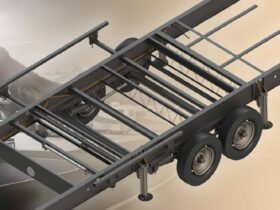

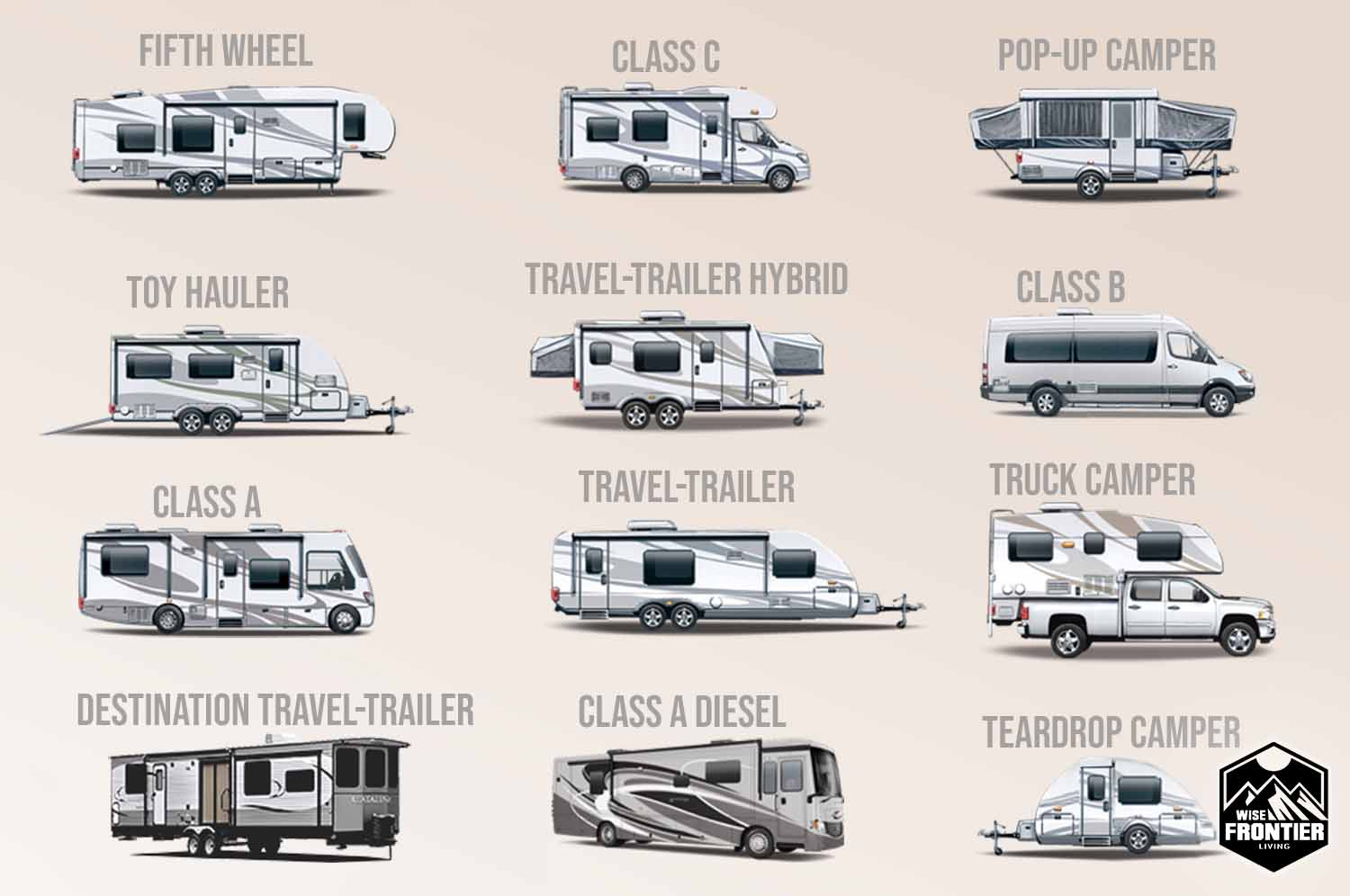

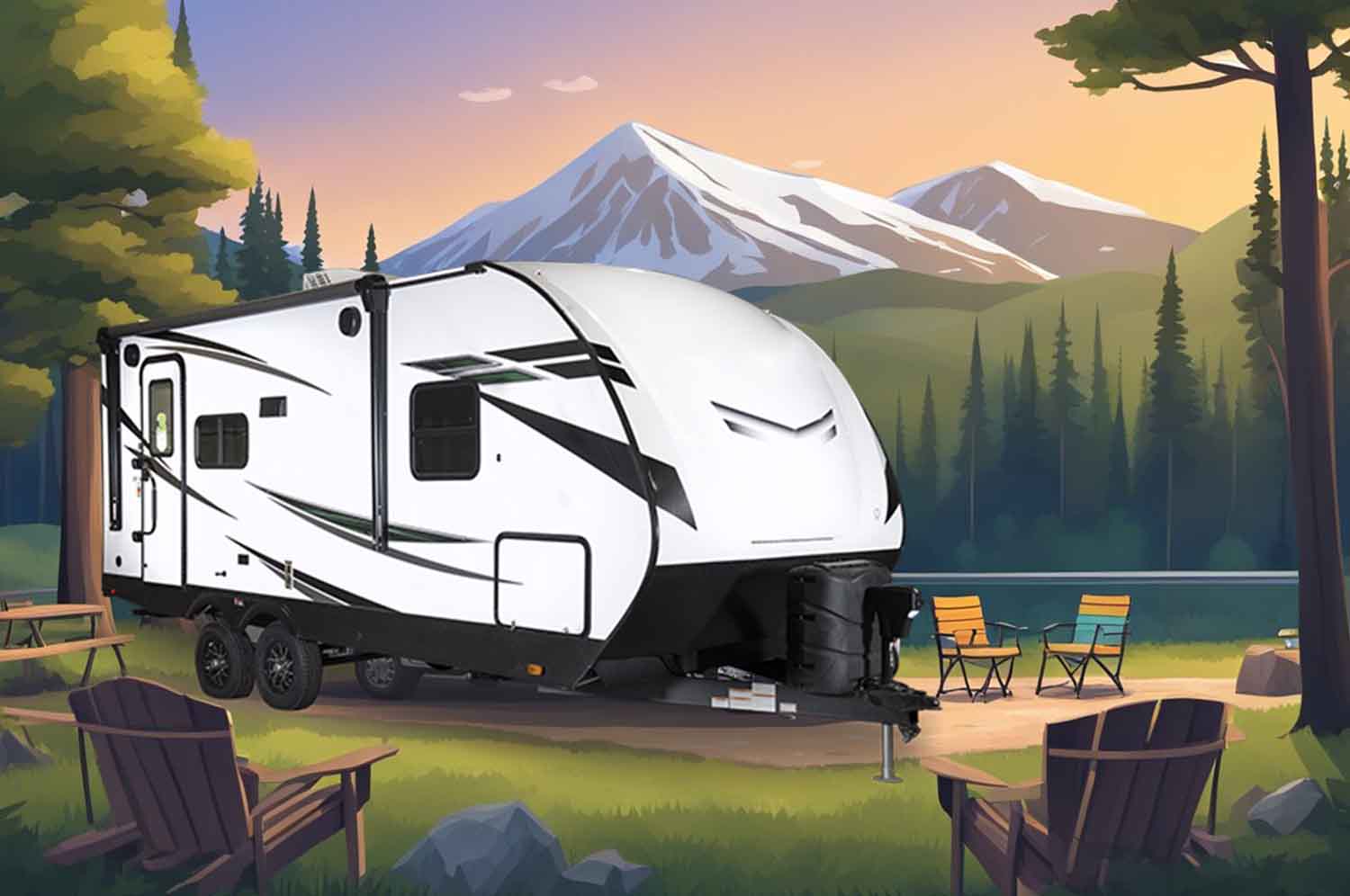
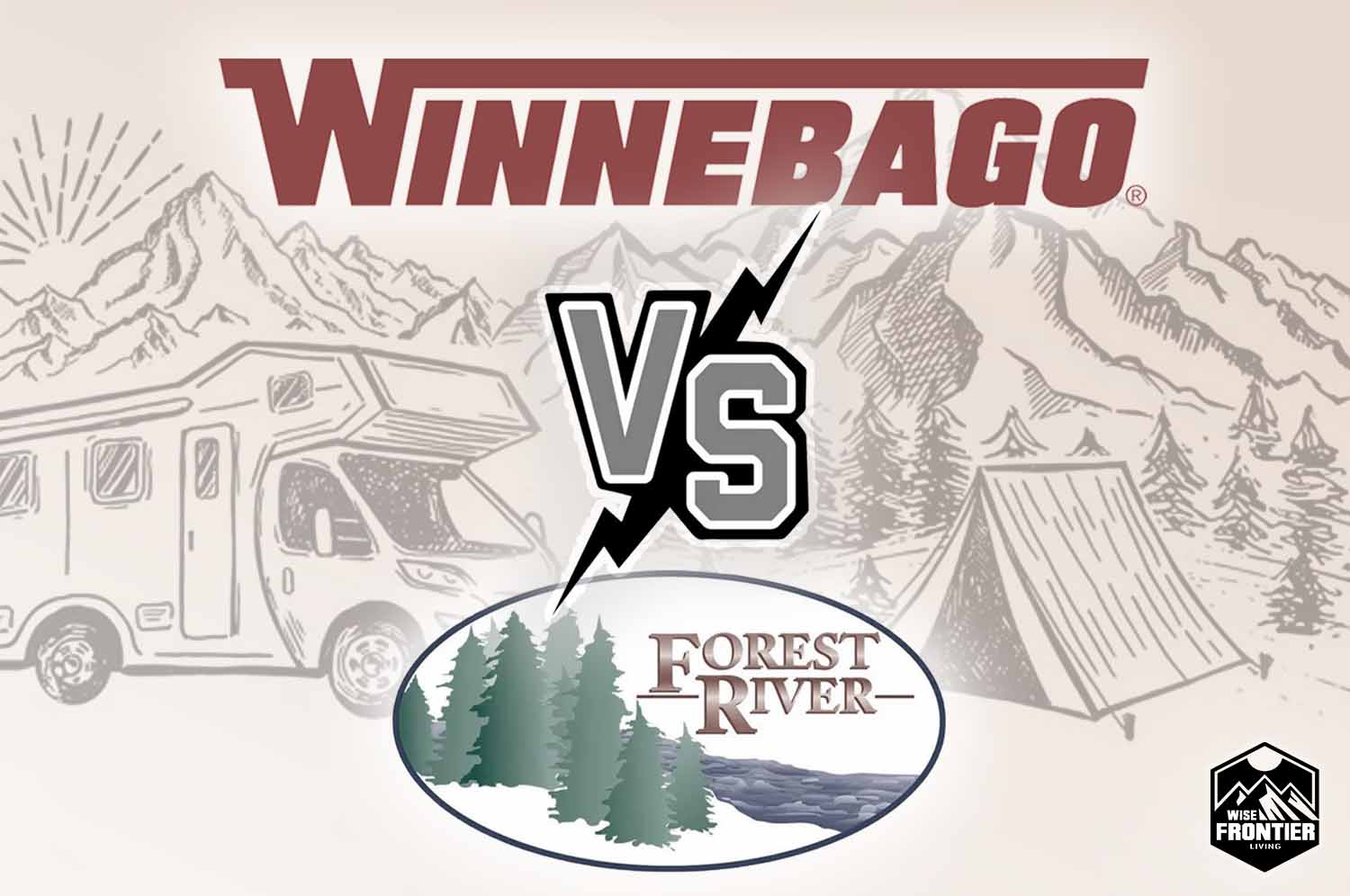

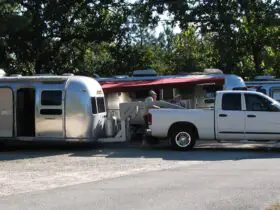
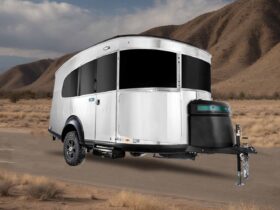

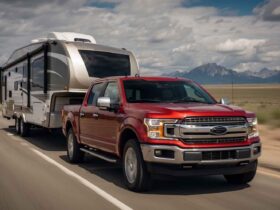



Leave a Reply